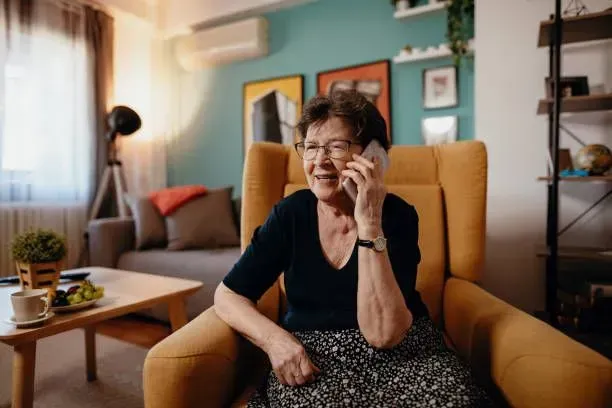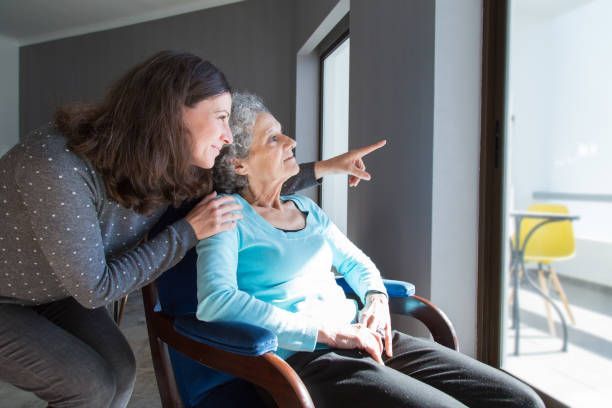
Providing the Same Level
of Care We Expect for
Our Own Family
(516) 408-0034
51 Ways to Support Seniors with Memory Loss at Home
51 Ways to Support Seniors with Memory Loss at Home
At 7 Day Home Care, we understand the immense value of proactively building strategies to support seniors with memory loss in the comfort of their own homes. By creating personalized care plans, establishing consistent routines, and implementing memory-enhancing activities, families can foster a safe and supportive environment that promotes dignity, independence, and quality of life. These proactive measures not only address current needs but also help prevent future challenges, reducing stress for both seniors and their loved ones. Our team of compassionate caregivers is dedicated to empowering families with the tools and expertise needed to navigate memory care effectively, ensuring every senior receives the thoughtful, customized support they deserve. 7 Day Home Care is licensed by the New York State Department of Health to provide home care services in Manhattan,
Queens,
Brooklyn, Nassau County, and Suffolk County, New York. To learn more about our home care services, please call 516-408-0034.

Learn Tips to Create a Safe, Enriching Environment for Your Loved One
Caring for a senior with memory loss can be both rewarding and challenging. Memory loss, often caused by aging, Alzheimer’s disease, or other forms of dementia, requires thoughtful strategies to ensure safety, comfort, and emotional well-being. At 7 Day Home Care, we understand the importance of supporting seniors with compassion and expertise. That’s why we’ve created this comprehensive guide: 51 Ways to Support Seniors with Memory Loss at Home.
1. Create a Safe and Supportive Environment for Seniors
Safety is crucial for seniors with memory loss. A well-organized and secure home can reduce confusion and prevent accidents.
1. Declutter Living Areas: Keep floors and surfaces free of unnecessary items.
2. Install Grab Bars: Place these in bathrooms and hallways to prevent falls.
3. Label Cabinets and Drawers: Use pictures or large print to identify contents.
4. Lock Away Hazardous Items: Secure medications, cleaning supplies, and sharp objects.
5. Use Anti-Slip Mats: Add these in the kitchen, bathroom, and other high-risk areas.
6. Secure Exits: Install door alarms or locks to prevent wandering.
7. Provide Adequate Lighting: Ensure all rooms are well-lit, especially pathways.
2. Establish a Routine for Seniors
Routine helps seniors feel more secure and reduces confusion.
8. Set Regular Meal Times: Serve meals at the same time each day.
9. Schedule Activities: Plan daily walks, games, or reading time.
10. Use Visual Aids: Display a large calendar or daily planner.
11. Keep Bedtime Consistent: Encourage a predictable sleep schedule.
12. Limit Sudden Changes: Minimize disruptions to their environment or routine.
3. Communicate Effectively with Seniors
Clear and patient communication is essential when interacting with seniors experiencing memory loss.
13. Speak Slowly and Clearly: Use simple language and short sentences.
14. Maintain Eye Contact: Show you’re engaged and listening.
15. Use Gestures or Visuals: Point to objects or use photos to aid understanding.
16. Avoid Arguments: Redirect the conversation instead of correcting them.
17. Encourage Reminiscence: Share familiar stories and ask about their past.
4. Stimulate Their Mind
Cognitive activities can help slow memory decline and provide enjoyment.
18. Play Puzzles and Games: Engage in memory games, crosswords, or board games.
19. Listen to Music: Play favorite songs to evoke positive emotions and memories.
20. Encourage Storytelling: Ask them to recount favorite life events.
21. Try Arts and Crafts: Painting or knitting can boost creativity.
22. Read Together: Choose books, poetry, or magazines they enjoy.
23. Watch Familiar Movies: Classics can spark recognition and conversation.
24. Explore Nature: Spend time gardening or enjoying outdoor scenery.
5. Promote Physical Health
Physical health has a direct impact on cognitive function and overall well-being.
25. Encourage Light Exercise: Activities like walking, yoga, or stretching.
26. Serve Nutritious Meals: Include brain-boosting foods like fish, berries, and nuts.
27. Ensure Hydration: Encourage regular water intake.
28. Schedule Regular Check-Ups: Monitor their health and medication needs.
29. Promote Good Sleep: Establish calming bedtime routines.
30. Limit Caffeine and Sugar: Avoid substances that may disrupt sleep or cause mood swings.
6. Foster Emotional Well-Being
Emotional care is just as important as physical care for seniors with memory loss.
31. Offer Companionship: Spend quality time to reduce feelings of isolation.
32. Celebrate Small Achievements: Recognize their efforts to boost confidence.
33. Provide Comfort Items: Blankets, photos, or favorite objects can create a sense of security.
34. Avoid Stressful Situations: Keep interactions calm and supportive.
35. Encourage Social Interaction: Arrange visits with friends, family, or community groups.
7. Adapt the Home for Memory Support
Practical adaptations can enhance independence while ensuring safety.
36. Use Color-Coded Items: Mark frequently used items with distinct colors.
37. Place Reminder Notes: Use sticky notes for daily tasks like “Take Medication.”
38. Organize Personal Items: Designate specific spots for glasses, keys, and other essentials.
39. Install Smart Technology: Use devices like GPS trackers or medication reminders.
40. Set Up a Familiar Environment: Arrange furniture and decor to evoke familiarity.
8. Engage Professional Support
Caregiving can be overwhelming. Professional assistance ensures your loved one receives the best possible care.
41. Hire a Home Health Aide: Professional caregivers provide personalized care and companionship.
42. Enroll in Adult Day Programs: Offer a structured environment with social and recreational activities.
43. Use Respite Care Services: Take breaks to recharge while ensuring your loved one is cared for.
44. Partner with a Memory Care Specialist: Seek expert advice on managing memory loss.
45. Join a Caregiver Support Group: Connect with others facing similar challenges for advice and encouragement.
9. Focus on Quality of Life
Improving daily experiences enhances their sense of purpose and happiness.
46. Cook Together: Prepare meals as a shared activity.
47. Plan Themed Days: Focus on a favorite activity or memory each day.
48. Encourage Participation: Involve them in simple household tasks like folding laundry.
49. Host Family Nights: Watch movies or play games together.
50. Celebrate Special Occasions: Birthdays, anniversaries, or holidays bring joy and connection.
51. Trust in Professional Home Care Agency Services
At 7 Day Home Care, we specialize in supporting seniors with memory loss. Our compassionate caregivers are trained to create safe, engaging, and personalized care plans that help seniors thrive at home. Whether you need assistance with daily tasks, companionship, or specialized memory care, we’re here to help. Contact us today to learn how we can make a difference for your loved one.
Caring for seniors with memory loss requires patience, creativity, and support. By implementing these 51 strategies, you can create a safe, nurturing, and enriching environment for your loved one. Remember, you’re not alone—7 Day Home Care is here to guide you every step of the way. 7 Day Home Care is licensed by the New York State Department of Health to provide home care services in Manhattan, Queens, Brooklyn, Nassau County, and Suffolk County, New York. To learn more about our home care services, please call 516-408-0034.
Brian Callahan
7 Day Home Care










Hours of Operation
We are Open 24 Hours a Day
7 Days a Week
All Rights Reserved | 7 Day Home Care | Created by DAR Web Consulting